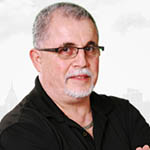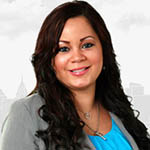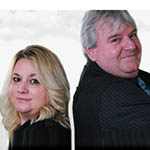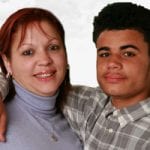Helping Families Move Forward Throughout Pennsylvania & New Jersey
Cerebral palsy (CP) is a group of disorders that may interrupt a child’s ability to move and maintain balance and posture. CP is the most common motor disability in childhood and occurs when brain damage causes muscle weakness and other problems. The condition can be a birth defect, caused by unusual brain development, or a birth injury, caused by damage to a baby’s developing brain.
As a birth injury, CP can result from undiagnosed maternal infections, birth asphyxia (suffocation), or bleeding in and around the brain. It is common among premature babies and those who are born during a breech birth (delivered feet-first). Access to good health care before, during, and after pregnancy can help babies avoid PC, but any mistakes during the medical process can increase an infant’s risk for CP or directly cause the disorder.If you believe your child’s cerebral palsy was caused by a medical provider, our experienced team of birth injury lawyers at Gay Chacker & Ginsburg Trial Lawyers can help.
What Are the Symptoms of Cerebral Palsy?
When a child has cerebral palsy, the disorder is not always obvious right away. In some cases, CP symptoms become noticeable after a child’s birth.
Symptoms to look out for include:
- Lack of muscle coordination (ataxia)
- Stiff or tight muscles
- Exaggerated reflexes (spasticity)
- Weakness in one or more arm or leg
- Unusual walking (on the toes, crouched, or with legs crossed)
- Muscles are very stiff or very soft
- Heavy drooling
- Difficulties speaking or swallowing
- Shaking or involuntary movements (tremor)
- Delayed development
- Inability to perform precise movements (writing, buttoning clothing)
CP manifests itself differently in every child. Some children may be slightly awkward and display no other differences from children without CP, while others may be unable to walk and require lifelong care. In about 30-50% of cases, CP is accompanied by intellectual disabilities, and as many as half of all children with CP have a seizure disorder like epilepsy. Other complications may also occur.CP can be a life-changing disorder. If a medical professional could have prevented it, you and your child deserve justice.
Forms of Cerebral Palsy
To better understand CP, doctors classify the disorder by its effects on movement and parts of the body.Spastic cerebral palsy is the most common type of CP and is characterized by still muscles and awkward movements. It can affect the arm, hand, and/or leg on one side of the body (spastic hemiplegia) or involve stiffness in the legs (spastic diplegia). The most severe form of spastic CP affects stiffness in all 4 limbs (spastic quadriplegia), is usually accompanied by intellectual disability, and rarely allows children to walk).Dyskinetic cerebral palsy refers to slow and uncontrollable writhing or abrupt movements of the hands, feet, arms, and legs. This type of movement in the face can lead to grimacing or drooling and some children have difficulty breathing, speaking, sitting up straight, and walking.Ataxic cerebral palsy affects balance and depth perception, causing children to have poor coordination and difficulty with quick or focused tasks.
Some forms of CP don’t correspond to a single category. For instance, a child may have stiffness in the legs and difficulty with coordination. Nevertheless, these classifications are valuable in assessing your child’s injury. We understand that no amount of money will eliminate your child’s disability but classifying CP can help our attorneys seek the appropriate amount of damages and provide your child with the resources they need for a long, happy life.
Can Cerebral Palsy Be Cured?
Unfortunately, there is no cure for CP. Proper treatment and management, however, can allow children to grown and enjoy near-normal adult lives.
Physical therapy can help children improve their muscle control and allow them to move easier. Special braces can also be used to increase mobility.
Once they are older, occupational therapy can help children with CP cope with everyday activities like getting dressed, going to school, and eventually, having a job. Throughout their lives, these children may also need access to assistive devices, drugs, surgeries, and other treatments and therapies.
At Gay Chacker & Ginsburg Trial Lawyers, we believe your child should have access to all of these resources. That’s why we want to help you file a cerebral palsy lawsuit and win your case.








